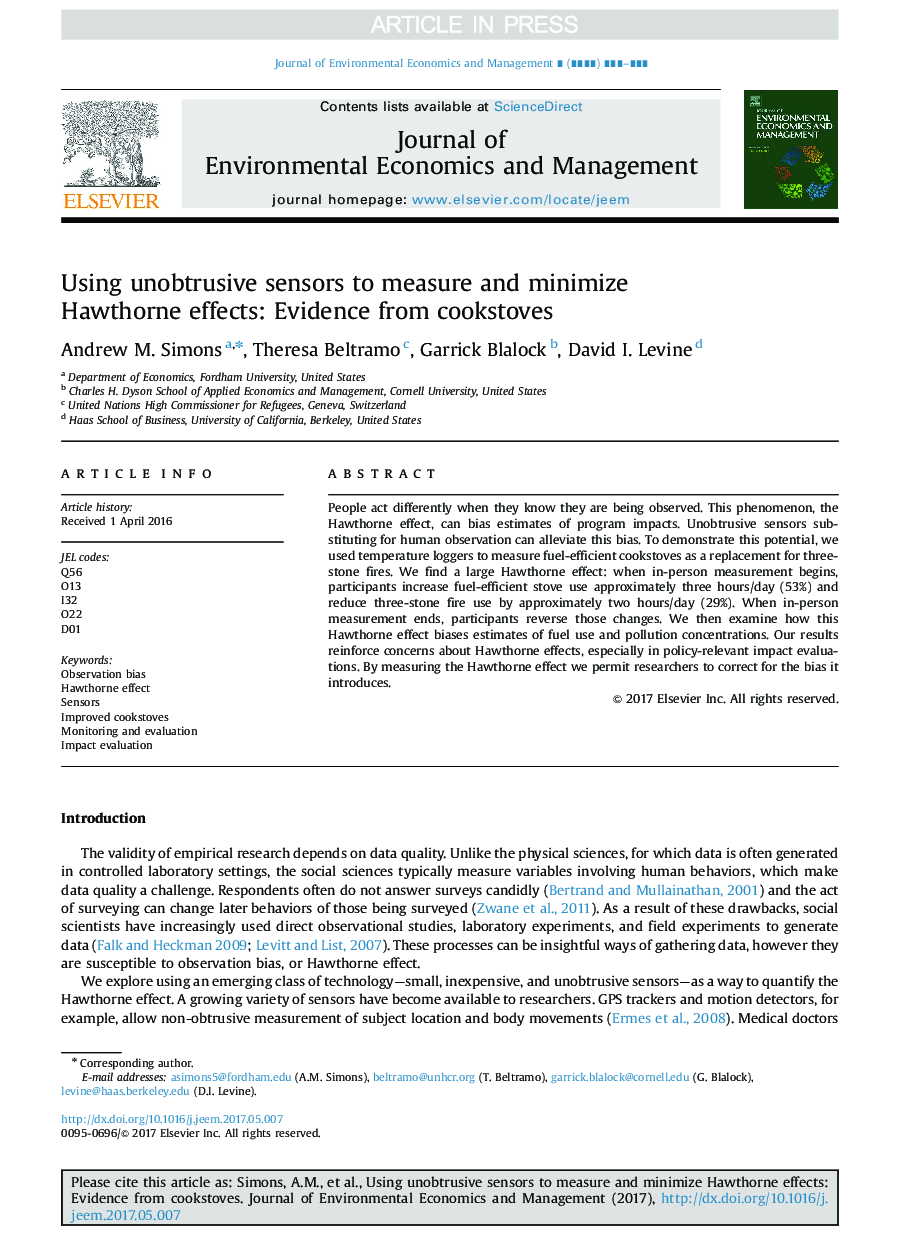| Article ID | Journal | Published Year | Pages | File Type |
|---|---|---|---|---|
| 7361523 | Journal of Environmental Economics and Management | 2017 | 13 Pages |
Abstract
People act differently when they know they are being observed. This phenomenon, the Hawthorne effect, can bias estimates of program impacts. Unobtrusive sensors substituting for human observation can alleviate this bias. To demonstrate this potential, we used temperature loggers to measure fuel-efficient cookstoves as a replacement for three-stone fires. We find a large Hawthorne effect: when in-person measurement begins, participants increase fuel-efficient stove use approximately three hours/day (53%) and reduce three-stone fire use by approximately two hours/day (29%). When in-person measurement ends, participants reverse those changes. We then examine how this Hawthorne effect biases estimates of fuel use and pollution concentrations. Our results reinforce concerns about Hawthorne effects, especially in policy-relevant impact evaluations. By measuring the Hawthorne effect we permit researchers to correct for the bias it introduces.
Keywords
Related Topics
Social Sciences and Humanities
Economics, Econometrics and Finance
Economics and Econometrics
Authors
Andrew M. Simons, Theresa Beltramo, Garrick Blalock, David I. Levine,
